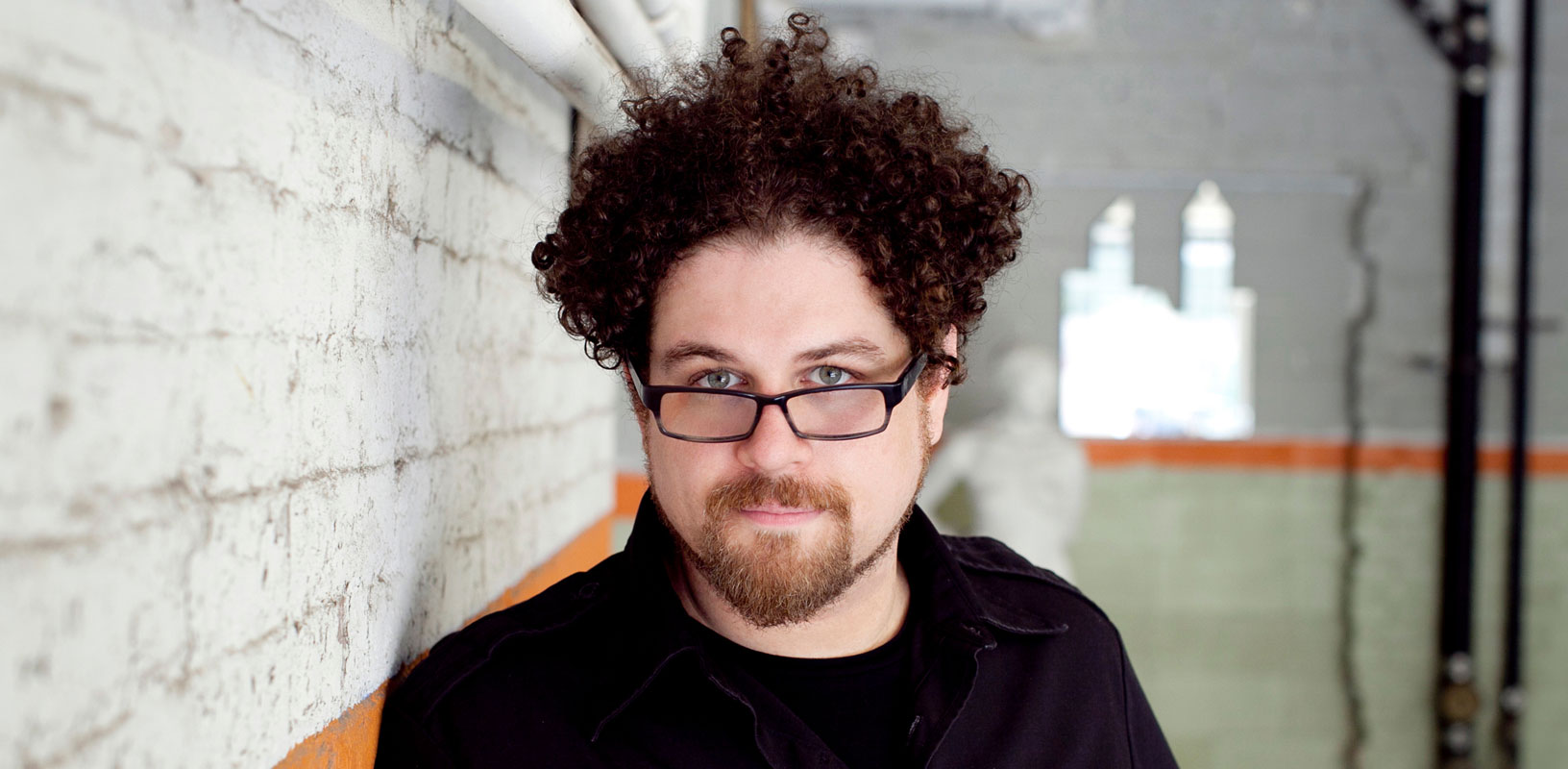David T. Little interview introduces his music

American composer David T. Little, who signed a publishing contract with Boosey& Hawkes last year, describes how his powerful works are not afraid to ask difficult questions.
Composers have often been pianists, sometimes string, wind or brass players, occasionally a guitarist. Has your life as a drummer given you a unique angle on composition?
Playing drums had a huge impact on how I think about music. It helped me to understand that even the slightest rhythmic inflection – playing on the front or back side of the beat – can have a major impact on other elements of a score. Harmony, melody, feel, pacing, drama: rhythm impacts everything. It’s a vital part of my work.
Your music happily straddles genres, blending rock with classical. Are you conscious of distinct styles as you compose?
I try to embrace the broadest possible musical universe. That’s how I’ve always been as a listener, so to be that way as a composer makes sense to me. My use of style in my compositions today is driven by instinct, and though I am aware of using a style, the process feels very organic. Style is a tool – like harmony and counterpoint. What tools you use depends on what you are trying to build.
You are director of the ensemble Newspeak. Does this provide you with a special laboratory for composition and performance?
Newspeak has been a vital part of my development. It helped me to find and refine my own sound. When I write for symphony orchestra, for instance, I’m striving to recreate some of the colours I discovered when writing for Newspeak. It has also given me a chance to perform music by young composers and colleagues, as well as masters like Andriessen, Rzewski and others, with some of the finest musicians I know. It has been an invaluable experience and has helped me become a better composer.
Many of your own works focus on political or sociological themes. What attracts you to particular texts?
I believe that it is an artist’s duty to ask questions – in particular, questions that can be difficult to hear, and often impossible to answer. Most of my works try to do this in some way, and I’m drawn to texts that do the same. Dog Days asks what we become upon the dissolution of civilization. Soldier Songs asks what war does to those who fight it. My desire to explore these large topics has also resulted in a number of large-scale chamber works over the years, most recently Haunt of Last Nightfall and AGENCY.
You’re currently working on a new opera JFK for premiere next year. What angle are you taking on this president?
JFK explores the inner worlds of John F. Kennedy in the hours spent in Fort Worth, Texas, before his assassination in Dallas. It is a portrait of the fleeting, final moments before a cosmic page turned, optimism faltered, and America was thrust into a new and turbulent era. It is an almost symbolist portrait of a historic figure on to whom we – at least in America – still project our own anxieties about fate and mortality, and in whose story we still feel a sense of profound loss.
Interviewed by David Allenby
> Further information on David T. Little
> Further information on Work: Dog Days
Photo: Merri Cyr
